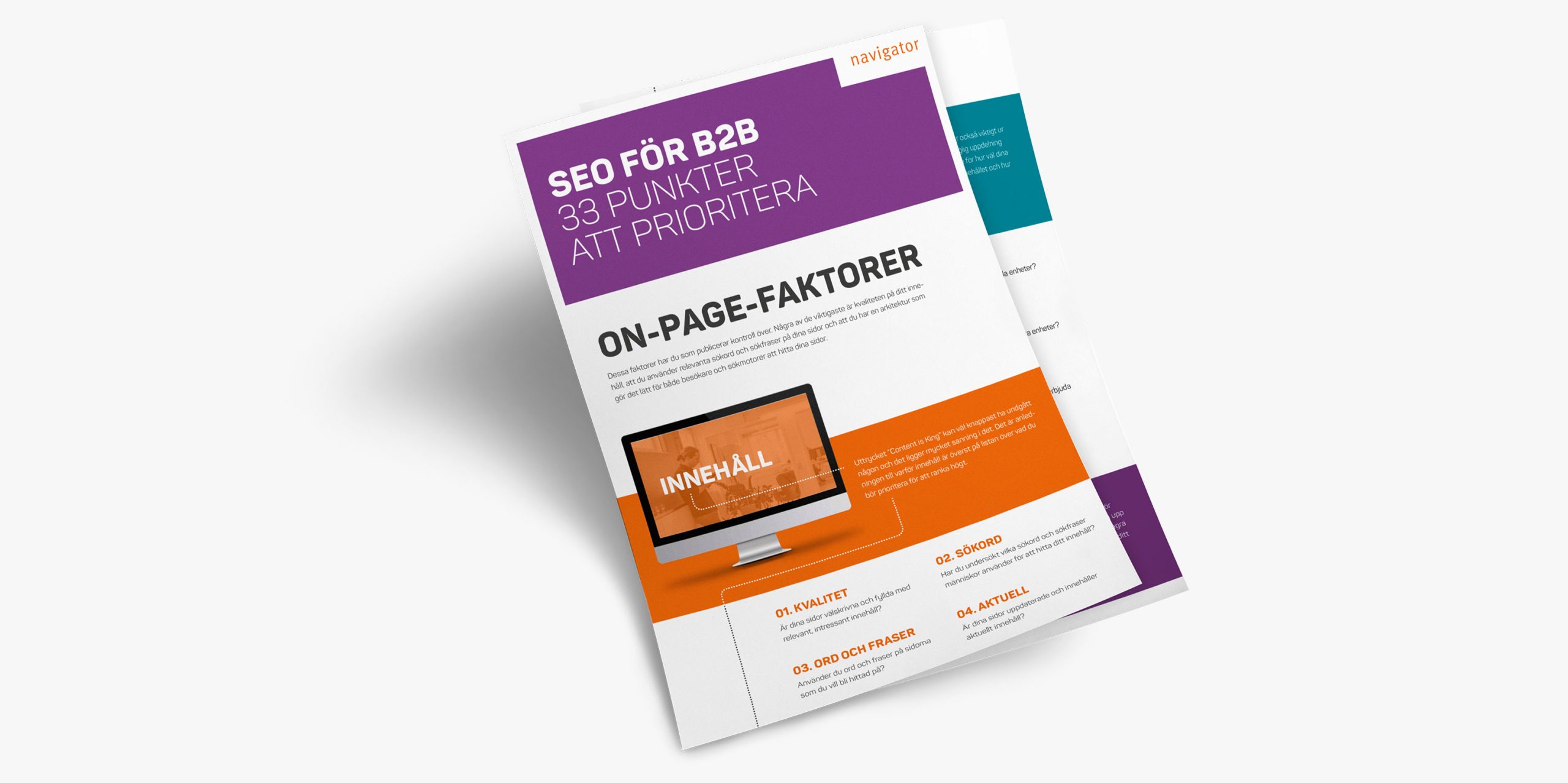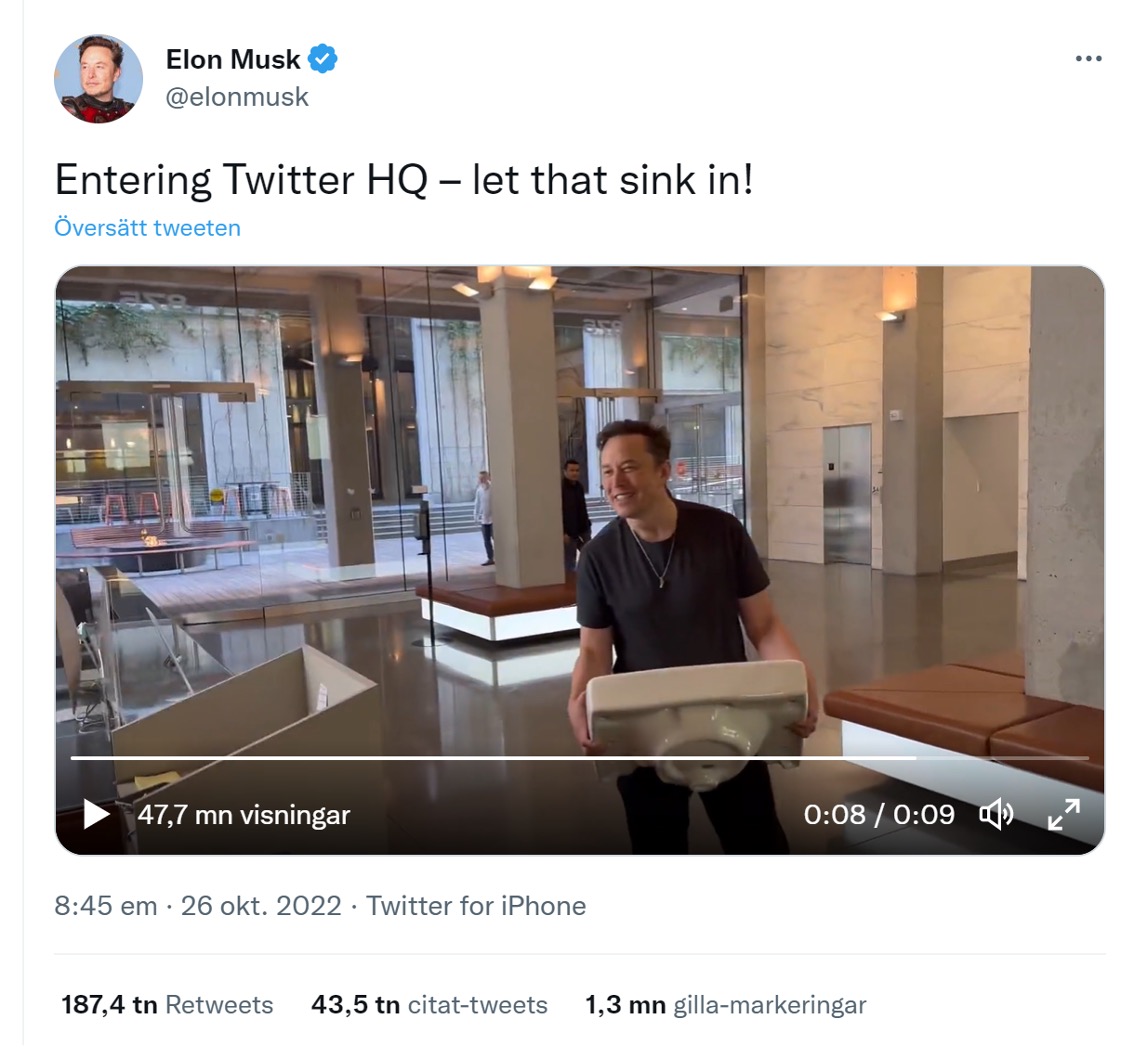Is Twitter going under?
Social media platforms come and go, some persist. Examples of platforms that have flourished but then disappeared include Google+, MySpace and Vine. Right now there is a lot of buzz around Twitter and many wonder if it is the platform's death throes we are currently witnessing. Or is the rumor exaggerated?
Twitter's background
Twitter has long been one of the major, established social platforms. Since Twitter was founded by Jack Dorsey and others in 2006, the number of active users has grown to around 330 million today. Nowhere near the billions of users of the giant Facebook, but still a highly respectable user base.
In Sweden, however, Twitter has struggled to take off, with only around 7% of Swedish internet users logging in daily. This compares to YouTube's almost 80%, Facebook's 70% and Instagram's 60%. However, Twitter has a strong foothold among media professionals and politicians, which means that the platform is often used for topical discussions and expressions of opinion, and is thus also referred to in traditional media. News reporting is one of Twitter's strengths, according to many users.
Elon makes his entrance
Tesla founder Elon Musk has long been a high-profile Twitter user, with over 118 million followers. But many people probably choked on their coffee when the world's richest man announced in spring 2022 that he wanted to buy Twitter. What started as a joke ended in a bid worth USD 44 billion.
What many people wondered was why an industrialist like Musk was interested in buying a social media platform? Elon Musk's agenda has been unfolding in his own Twitter feed over the past six months, from the idea that he wants to see greater freedom of speech in general, to the ideas around a renewed business model for Twitter.
When the deal was finally finalized, it was after much back and forth, from withdrawn bids to threats of lawsuits from the board. Elon Musk took to Twitter on October 26 with a sink in his hands, a smile on his face and delivered the message "Entering Twitter HQ - Let that sink in!"
Elon Musk claims that buying Twitter is about "helping humanity, which I love". A known libertarian, Musk has made no secret of the fact that he wants no restrictions on what can be said on Twitter, except the purely legal ones. In November 2022, he took action and introduced a general amnesty for banned tweeters. All banned accounts were welcomed back, including Donald Trump, who was suspended after tweeting during the storming of the Capitol.
What's the fuss about Twitter?
On social media, there is a constant flow of opinions and exchanges. Social channels are a melting pot of opinions where users are constantly rubbing shoulders with each other. In other words, it is a breeding ground for conflict.
Elon Musk's own outspokenness, and his liberal approach to what can be said, has worried some who fear that Twitter will increasingly become a place where hate and threats are given free rein. And since one of his first moves was to fire half of the approximately 7,500 employees, as well as much of the management, some fear that Twitter's accountability and moderation will be reduced. Many high-profile Twitter users have announced that they will leave the platform if Twitter does not take greater responsibility for the climate of conversation and content.
How does Twitter make money?
Like many other social media platforms, Twitter has long struggled with its business model. On the one hand, the question of how to capitalize on its large user base, and on the other, how to achieve long-term profitability. For Twitter, revenue comes primarily from advertising and from licensing data. Advertising means that users encounter sponsored posts and promoted accounts. Licensing means that Twitter allows its partners to examine and analyze user data.
Elon Musk questioned Twitter's business model early on, writing in a tweet that he intended to create an ad-free Twitter. However, he had to back away from this idea and the tweet was deleted shortly after. The next move was to start charging for the blue checkmark that appears next to verified profiles. This was questioned by many, including author Stephen King, who threatened to leave the platform if the proposal became a reality. However, the blue verification checkmark started to be sold at the price of 8 USD per month, but after a large number of "verified" fake accounts appeared creating confusion, the option was quickly withdrawn.
The future of Twitter
The storm winds are blowing hard, and the little Twitter bird is being tossed this way and that. Critics claim that the current chaos will be the end of Twitter. They say Elon Musk is destroying the platform and that users will flee. Others argue that what we are seeing is a much-needed renewal of user experience and business model, which is something the other social platforms will also have to deal with.
So what does the future hold for Twitter? Will the platform ride out the storm and become profitable again? The answer to that question remains to be seen. In the meantime, the rest of us can enjoy following the developments, where Twitter, if nothing else, has a very verbal Chief Twit who is happy to let the drama play out in front of the curtain.
To be continued...


Related posts

LinkedIn as a growth engine - how to build a successful presence
In recent years, LinkedIn has evolved from a pure networking platform to a powerful channel for B2B marketing, employer branding and lead generation. With over 1 billion users globally, LinkedIn is a platform where companies can build brands, attract new customers and create business opportunities. But how do you maximize your presence on LinkedIn? In this post, we'll walk you through step-by-step how to work on your company profile, personal profile, organic content, advertising and social selling.

SEO for B2B - how it works
Search engine optimization for B2B companies is very different from how it works in the consumer world. It's less about volume and more about relevance. The most important thing is not how many people search for a particular word or phrase. What matters is that the right person finds you and your site. SEO for B2B - how it works!

Five clear trends in B2B communication in 2024
If you want to reach out and really touch people with your messages, you need to think twice. It's easy to get stuck in a rut and keep doing what used to work. But the world is changing and sometimes it's a good idea to think about the implications for your company's communication. Here we highlight some of the trends that are currently evident in B2B communication in 2024.

